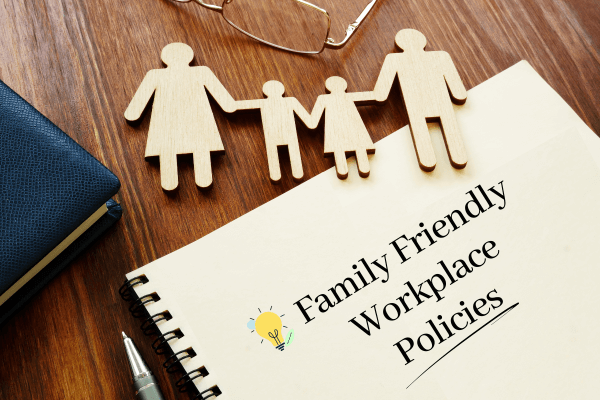As Maya Angelou once wisely stated, “I’ve learned that people will forget what you said, people will forget what you did, but people will never forget how you made them feel.” By embracing and implementing family friendly practices, organizations have the opportunity to make a profound impact on the lives of their employees and their families and to foster a culture of inclusivity, loyalty, and productivity.
Flexible Working Hours
Remote Working Opportunities
Parental Leave Policies
On-site Childcare
Lactation Rooms
Parenting Resources
Employee Assistance Programs
Insurance Benefits
Training for Managers and Teams
Create Multiple Support Options
Conclusion
Supporting new parents at the workplace, much like the emphasis on prenatal care, is essential for cultivating a healthy work environment. By adopting these practices, organizations can help foster employee loyalty, improve job satisfaction, increase productivity, and reduce turnover. In short, companies that take care of their employees often find that their employees take care of the business in return.
Supporting Moms and Dads at Work. Swipe & Learn!










How can Veira Life help?
At Veira Life, we are dedicated to supporting new parents during their transition into parenthood, both in their personal lives and professional careers. We recognize the significance of this transformative journey and offer a range of services designed to help new parents thrive in all aspects of their lives.
Through our comprehensive programs and expert guidance, we provide expectant and new parents with the tools and resources to navigate the transition into parenthood with confidence and planning. Our Veira Partners program offers tailored solutions to companies seeking to enhance their employee wellness initiatives, with a particular focus on prenatal and postnatal support.
By partnering with Veira Life, the organization can tap into our expertise and leverage our resources to implement a holistic approach to supporting new parents in the workplace. Our programs provide comprehensive information, coaching and support services for new parents.
We believe that by creating an environment of empathy, understanding, and support, organisations can foster a positive and inclusive culture where new parents can thrive both personally and professionally. Our aim is to assist companies in building a strong foundation for employee well-being and work-life integration.
We invite organisations to explore the benefits of our Veira Partners program and join us in championing the well-being of new parents. Together, we can create an environment that values the unique needs and experiences of employees as they navigate the beautiful journey of parenthood.
Contact us for a demo and to learn more about how we can support your organization in creating a nurturing and supportive environment for new parents. Let us be your partner in fostering a workplace culture that celebrates and supports the joys and challenges of parenthood.
FAQs
- Offer flexible work arrangements, such as telecommuting or flextime.
- Provide on-site childcare or help with finding affordable childcare.
- Create a supportive work environment that is empathetic towards the challenges new parents face.
- Transition support – provide support to new parents transitioning from parental leave back to work.
Set realistic expectations: Don’t try to do it all. It’s okay to ask for help.
Delegate tasks: Get your partner, family, and friends involved.
Prioritize: Decide what’s most important and focus on that.
Take breaks: Don’t try to work non-stop. Take some time for yourself each day.
Don’t be afraid to ask for help: If you’re feeling overwhelmed, don’t be afraid to ask for help from your boss, colleagues, HR, or a therapist.
- Juggling work and family commitments
- Finding affordable childcare
- Balancing work-life balance
- Feeling guilty about not being able to spend enough time with their children<
- Dealing with stress and burnout
Prioritize tasks, delegate when possible. Set a flexible routine. Communicate with your employer for understanding and support. Use childcare options if needed. Don’t forget self-care, and be patient.





